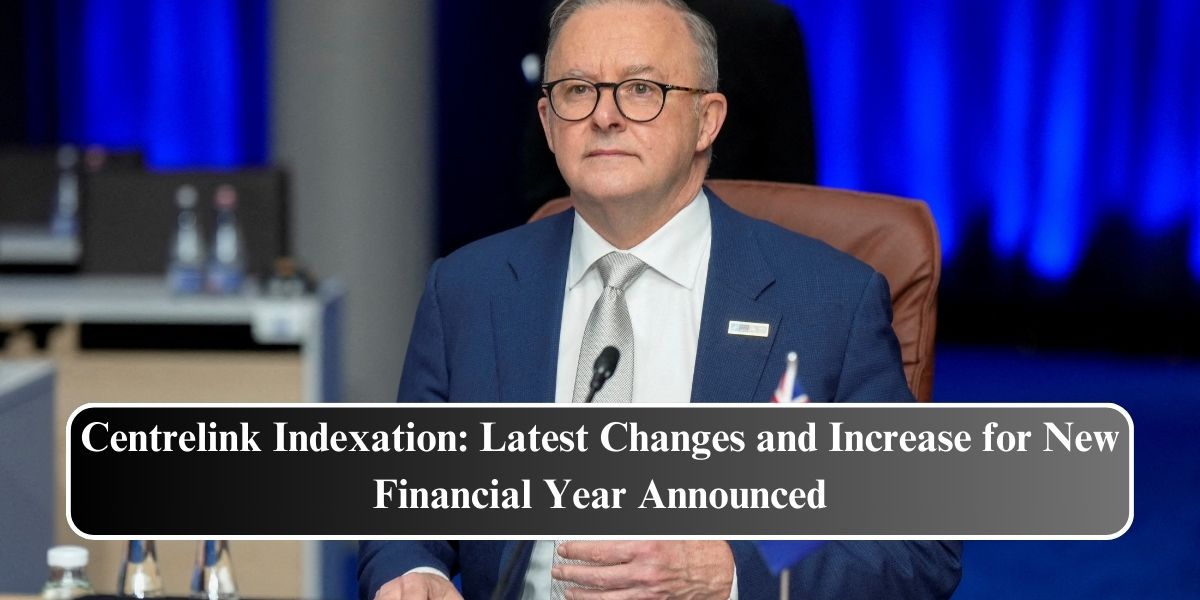Welcome to our latest blog post on “Centrelink Indexation: Latest Changes and Increase for New Financial Year Announced.” As the new financial year begins in Australia, numerous changes are set to impact individuals, families, and businesses across the nation.
These adjustments aim to enhance financial security, support families, and address emerging health and economic challenges. In this post, we will outline the key changes you need to know about, including tax cuts, wage adjustments, superannuation updates, and more. Let’s dive in to see how these changes may affect you and your loved ones.
Table of Contents
Centrelink Indexation
As Australia’s new fiscal year starts, a number of major changes to supervision will have an effect on people, families, and companies all over the country. These regulatory changes encompass a broad spectrum of adjustments aimed at enhancing financial security, supporting families, and addressing emerging health and economic challenges.
| Irs Stimulus Checks |
| $1400 Stimulus Checks |
| Ctc Monthly Payments Schedule |
| $300 Child Tax Credit |
| Ctc Deposit Date Fixed |
Several significant changes in Australia are coming into effect from Monday that you must be aware of. As the new policies take effect, Australians can expect immediate impacts on their finances and significant social benefits aimed at stimulating economic resilience and social welfare. Read on to learn what to expect in the new financial year.
Centrelink New Changes 2024
The introduction of stage three tax cuts is one of the most looked forward to changes in the new policy. This adjustment will affect all Australian taxpayers, with reductions in the tax rates across various income brackets. Here are the changes in the tax rate for the 2024/25 calendar year:
| Income Range | Previous Tax Rate | New Tax Rate |
|---|---|---|
| $18,200 to $45,000 | 19 percent | 16 percent |
| $45,000 to $135,000 | 32.5 percent | 30 percent |
| $120,000 to $135,000 | 37 percent | Increased threshold |
| $180,000 to $190,000 | 45 percent | Increased threshold |
These changes aim to provide financial relief to low- and middle-income holders, ultimately impacting the net pay of millions of Australians.
Centrelink Increase for New Financial Year Announced
With the new fiscal year officially starting, several adjustments are kicking off from 1 July 2024. Here is the list and relevant information on Centrelink’s increase for the new financial year:
- Minimum Wage Rate Changes: The minimum pay and award wage will go up by 3.75 percent on July 1, 2024. This increases the minimum wage to $24.10 per hour or $915.90 per week for full-time workers. Nearly 2.6 million employees across the nation will benefit from this adjustment, addressing the burden caused by the inflated cost of living.
- Superannuation Changes: Employer superannuation contributions will increase from 11 percent to 11.5 percent, strengthening retirement savings for employees. Additionally, contribution caps for before-tax and after-tax contributions to the super account have been raised to $30,000 and $120,000, respectively.
- Energy Rebate: To alleviate energy costs, all households will receive a $300 credit on their electricity bills. Small businesses are also entitled to a rebate of $325, providing financial relief against rising utility expenses.
- Parental Paid Leave Changes: Parents will get more help in the new fiscal year, with an extra 10 days of paid maternity leave each year, for a total of 110 days each year. Payments will align with the minimum wage, currently set at $915.91 per week, focusing on providing greater financial stability to households during the critical early stages of parenthood.
- Vaping Regulation: A notable government change is a prohibition on the sale of vapes and related products from 1 July. Starting on 1 October, vapes will be available exclusively through pharmacies, marking a significant change in the government’s approach to vaping regulation.
All You Need to Know About Centrelink Indexation
Apart from these major changes, various other adjustments have also been made in the new financial year:
- Federal Politicians’ Pay: Federal politicians will receive a 3.5 percent pay increase, with the Prime Minister’s salary exceeding $600,000 yearly.
- Social Security Benefits: Recipients of Age Pensions, Disability Support Pensions, and Carer Payments will benefit from enhanced income and asset thresholds.
- Passport Costs: The cost of an adult passport will rise to $374, with a new fast-track service available for advance processing at a fee of $100.
- Medicare Levy and Health Insurance: The threshold for the Medicare Levy Surcharge and private health insurance rebate will be adjusted, impacting eligible singles and households.
- NBN Prices: NBN prices are set to rise due to wholesale adjustments, affecting various internet plans offered by providers nationwide.
As we embark on the new financial year, it’s essential to stay informed about the changes that will impact our daily lives. The updates to Centrelink indexation, tax rates, minimum wage, and other areas aim to provide financial relief and support to Australians. By understanding these changes, you can better navigate the financial landscape and make informed decisions for your future.
| 2000 Stimulus Checks For Veterans 2024 |
| 700 Stimulus Checks 2024 |
| Group Retirement Savings Plan |
| Cola Increase 2024 |
| Scotiabank Interest Rate Changes 2024 |
Stay tuned to our blog for more updates and insights on government policies and how they affect you. Thank you for reading, and we hope this information helps you prepare for the year ahead.
| Official Website | https://www.servicesaustralia.gov.au/ |
| Home | https://sosamericapac.org/ |
FAQs
What are the new tax rates for the 2024/25 financial year?
The new tax rates include a decrease from 19 percent to 16 percent for incomes ranging from $18,200 to $45,000, and from 32.5 percent to 30 percent for incomes between $45,000 and $135,000. The thresholds for the 37 percent and 45 percent tax brackets have also increased.
How much will the minimum wage increase in the new financial year?
The minimum wage will rise by 3.75 percent, increasing to $24.10 per hour or $915.90 per week for full-time workers.
What changes have been made to superannuation contributions?
Employer superannuation contributions will increase from 11 percent to 11.5 percent. Contribution caps for before-tax and after-tax contributions have been raised to $30,000 and $120,000, respectively.
What is the new energy rebate for households and small businesses?
All households will receive a $300 credit on their electricity bills, and small businesses will be entitled to a $325 rebate to help with rising utility expenses.
How has parental paid leave changed for the new financial year?
Parents will receive an extra 10 days of paid parental leave annually, bringing the total to 110 days per year. Payments will be aligned with the minimum wage, providing greater financial stability during early parenthood.




